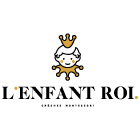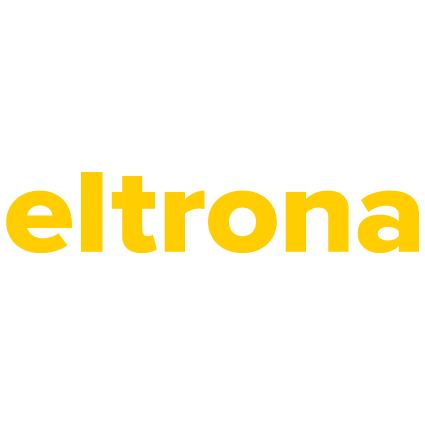If you live in Luxembourg or work across the border, what family allowances are available to you? Depending on your situation, there are various types of subsidies and other public financial aid for your children's education and schooling.
Here are the various family allowances available in Luxembourg for your family.
- Childbirth allowance
- Allowances for children's future with child benefit calculation thanks to our integrated calculator
- Back-to-school allowance
- Subsidy for low-income households
- School Maintenance Grant
- Special supplementary allowance for disabled children
- Chèque-service Accueil (CSA).
Family allowances linked to the birth of a child
Childbirth allowances and cross-border workers
First of all, it's important to know that the childbirth allowance cannot be combined with a childbirth allowance paid in the country of residence. In addition, a frontier worker is not entitled to birth-related family allowances on behalf of the mother.
General information about birth grants
Are you expecting a child or has one just been born? The birth grant is not automatic in Luxembourg. You have to apply to the administrative authorities.
Birth grants are paid on request, in 3 instalments of 580.03 euros each time. The conditions for obtaining birth grants are as follows:
Prenatal allowance in Luxembourg
In Luxembourg, only the mother of the child benefits from the birth allowance. To qualify, she must be a resident of Luxembourg or be affiliated to the Social Security system at the time of the last of the 5 compulsory medical examinations for pregnant women , or at the time of the dental examination required before the birth of the child.
Childbirth allowance for the mother
The birth grant is paid only to the mother of the child. The child must be viable (at least 22 weeks gestation). In addition, the mother must be resident in Luxembourg or affiliated to the CCSS at the time of birth. The mother must also undergo a post-birth medical examination by a specialist in gynecology or obstetrics.
Post-natal allowance in Luxembourg
The post-natal allowance is paid if the child has been continuously raised in Luxembourg since birth. It is also paid if one of the 2 parents has been working in Luxembourg or is affiliated to the CCSS since the child's birth and up to the child's 2nd birthday. In addition, the child must have undergone 6 examinations by a doctor up to the age of 2.
The Caisse pour l'Avenir des Enfants is the contact organization for applying for birth grants. See how to register the birth of a child in Luxembourg.
Family allowances for children's future in Luxembourg
If you are or become a parent in Luxembourg, you can benefit from family allowances. This public financial aid helps parents to raise and educate their children up to the age of 18, or even up to the end of higher education (maximum age 25).
In the Grand Duchy, family benefits depend on family and professional situation, family composition and place of residence. Below, we explain the conditions for obtaining family allowances and the steps you need to take to ensure your children's future.
What are the conditions for receiving the allowance for the future of children?
The allowance for the future of children is a personal right for all children residing in Luxembourg, from the month of birth until the age of 18.
This public financial assistance continues until the child reaches the age of 25 if he or she is pursuing secondary education. These studies may be general, technical, specialized, apprenticeship, or any other complementary or preparatory training. The child must study in Luxembourg for at least 24 hours a week. Higher education by correspondence is not eligible for the allowance for the child's future.
Children benefiting from differentiated training with adapted follow-up abroad can also benefit from Child Future allowances beyond their 18th birthday.
In the event of the death of a beneficiary child, the allowance ceases the following month.
The "Zukunfskeess", or Caisse pour l'Avenir des Enfants (CAE) , is the organization in charge of family allowances for the future of children.
Luxembourg residents and allowance for the future of children
In order to receive the allowance for the future of children, the child concerned must be legally resident in the Grand Duchy on a continuous basis .Otherwise, the child's case must correspond to certain specific situations.
In the month following their 18th birthday, young people can apply to the CAE for a family allowance in their own name.
Non-residents, frontier workers and childcare allowance
Cross-border commuters are also eligible for child benefit, provided they meet certain conditions.
To qualify, the child's parents must work in Luxembourg and be affiliated to the joint social security center. Their child must reside in a European Union country that has a social security agreement with the Grand Duchy.
European civil servants and childcare allowance
A child of a European civil servant residing in Luxembourg and entitled to both Luxembourg and non-Luxembourg family benefits is not eligible for supplementary assistance.
In this case, Luxembourg family allowances stop up to the amount of family benefits paid under the non-Luxembourg scheme.
Posted workers and childcare allowance
With regard to the allowance for the future of children, we distinguish between the following cases of secondment:
- Secondment to Luxembourg
A parent on temporary secondment to Luxembourg remains subject to the social security system of the sending country. Their children have no entitlement to family benefits.
If one of the parents starts work in the Grand Duchy and registers with Luxembourg social security, Luxembourg pays the difference between the amounts paid by the sending country and those existing in the Grand Duchy.
- Secondment outside Luxembourg
There is no change in the case of a worker seconded to another European Union country, while remaining affiliated to Luxembourg social security and retaining his/her legal domicile within the European Union.
Family allowance payments in Luxembourg
Child benefit is paid at the end of the month, usually in the last week of the month for which it is due. However, the date may vary from month to month.
Family allowances in Luxembourg
There are two family allowance schemes.
Family allowance scheme since August 1, 2016
The child benefits from the new family allowance scheme in the following cases:
- If the child is an only child or was born on or after August 1, 2016.
- If your parents lived or worked in Luxembourg on or after August 1, 2016.
Under the new law, only children born in or out of wedlock or adopted by a worker in Luxembourg are eligible for family allowances.
The allowance is standardized and subject to indexation. The monthly family allowance is 299.86 euros per child.
An age supplement of 22.67 euros is applied for children over 6, and 56.57 euros for children over 12.
Transitional family allowance scheme, before 2016
The child benefits from the transitional family allowance scheme:
- If born before August 1, 2016,
- If your parents were working or living in Luxembourg before August 1, 2016.
The amount of family allowance is :
- 1 child: 299.86 euros
- 2 children: 336.31 euros per child
- 3 children: 389.67 euros per child
- 4 children: 416.40 euros per child
- 5 children: 432.36 euros per child
An age increase is also granted:
The family also receives an additional allowance of 200 euros, as well as an age increase of :
- 22.67 euros per child aged 6 to 11
- 56.57 euros per child aged 12 and over.
How do I apply for child benefit?
All applications for child benefit must be submitted to the Caisse pour l'avenir des enfants. Parents must complete a form and submit it with the required documents.
Documents to be presented by residents
- An extract from the child's birth certificate,
- A bank statement,
- Proof of residence authorization in Luxembourg for all family members for residents of nationalities other than EU, EEA or Swiss.
Documents for non-residents
- Certificate of residency,
- Household composition,
- An extract from the child's birth certificate,
- A bank statement,
- If benefits have been paid abroad: a certificate of entitlement to family benefits.
Family allowances for schooling in Luxembourg
Back-to-school allowance
The back-to-school allowance eases the burden on families at a time when children need to be equipped for school: clothes, school supplies, etc.
For whom and under what conditions?
The allocation de rentrée scolaire (back-to-school allowance) is paid to children aged 6 and over when they start elementary school. They receive this benefit until the end of their secondary education or equivalent.
Children admitted to the 2ndcycle ofbasic education who have not yet turned six at the start of the school year are also entitled to the allowance. However, a school certificate must be presented.
Amount of back-to-school allowance
The back-to-school allowance is a single amount paid per child in August of each year. It amounts to 115 euros for children aged 6 and over, and 235 euros for children aged 12 and over.
How to claim the back-to-school allowance
The back-to-school allowance is automatic. However, if a child is admitted to the 2nd cycle of basic education, but has not yet reached the required age of six, parents must present a school certificate in order to receive the allowance.
Subsidy for low-income households in Luxembourg
For whom and under what conditions?
The subsidy for low-income households benefits families with one or more dependent children enrolled in a Luxembourgsecondary or technical secondary school.
It can also be a private educational establishment under contract if it applies the official curriculum of the Ministry of National Education, Children and Youth. Finally, the student must be enrolled full-time or in concurrent training.
To qualify, families must meet a number of conditions, such as :
- reside with the student,
- have parental authority over the child,
- have a net monthly income below the low-income threshold.
Subsidy amount for low-income households
The low-income subsidy benefits households below a social index, which varies according to household composition and net monthly income.
The grant is paid in two instalments: the first at the start of the school year, the second in April.
Depending on household circumstances, some students may also benefit from a preferential rate for school meals .
How to obtain the low-income subsidy
Individuals must apply for the grant by October 15 at the latest. It must be repeated each year to the SePAS (Service Psycho-social et d'accompagnement scolaire) of the lycée of each student concerned.
An application must be made for each child in the household. The application will be examined in November to determine whether or not this social measure will be granted.
Find out more about the subsidy for low-income households
School maintenance subsidies in Luxembourg
For whom and under what conditions?
The school maintenance grant is intended for students who have reached the age of majority, are in psycho-social distress and are forced to live on their own.
To qualify for this assistance, several conditions must be met:
- Be between 18 and 30 years of age on the date of application,
- Be enrolled full-time - or in concurrent training - in a public secondary or technical secondary school in Luxembourg. This can also be a private educational establishment under contract if it applies the official curriculum of the Ministry of National Education, Children and Youth,
- Continue your education until you obtain a diploma,
- Being forced to live alone and in psycho-social distress, having to pay rent certified by a SePAS social report,
- Be monitored by a SePAS social worker and/or psychologist.
There is no deadline for submission.
School maintenance grant
The school maintenance grant operates on a per-school-year basis, depending on the applicant's income situation and rental costs. Payment is made in three-month instalments from the date of application, to the account of the young person making the application. Payment stops three months after graduation, at the latest.
How to obtain the school maintenance grant
All applications must be submitted by appointment to the school 's SePAS, in order to analyze the applicant's social situation and submit an application file to CePAS for processing and approval.
There is no deadline for submitting files.
Grants for higher education in Luxembourg or abroad
See this page to find out more about higher education grants
ASS special allowance for disabled children
Who benefits from ASS in Luxembourg?
The "Allocation Spéciale Supplémentaire" or ASS is a Luxembourg financial aid scheme designed to compensate for the additional burdens caused by a child's disability.
To qualify, the child must suffer from one or more conditions causing a permanent reduction of at least 50% in his or her physical or mental capacities compared with a child of the same age. The Social Security doctor alone determines the degree of disability . However, this assessment may vary from that of the child's attending physician.
ASS monthly assistance supplements the family allowance. The child must therefore receive the latter. This financial aid is paid up to the child's 18th birthday. It can also be extended to the age of 25 if the conditions are met.
How to obtain the special supplementary allowance
The Caisse pour l'avenir des enfants (CAE ) is the contact organization for all ASS applications.
Parents must submit a duly completed form to the organization , together with a recent detailed medical certificate.
Chèque Service Accueil: contribution to extracurricular costs
Do your children attend a crèche, day care center or Maison-Relais as part of their basic schooling? Do they take part in extra-curricular activities? You can benefit from the Chèque-Service-Accueil.
What is the CSA or Chèque-Service-Accueil?
The Chèque-Service-Accueil is a financial contribution from the Luxembourg government for out-of-school childcare for children aged 0 to 12.
Financial support from the CSA or Chèque Service Accueil is aimed at families with one or more children in day nurseries or day care centers, or enrolled inLuxembourg's basic education system. Families can benefit up to the child's 12th birthday, or later if the child is still attending basic school.
The French government provides financial assistance to families under the CSA program, covering all or part of the cost of childcare. The CSA can also help finance extra-curricular activities with CSA service providers.
The French government pays the CSA amount directly to the service provider identified as the "CSA provider". In practical terms, this subsidy means a reduction in the amount of the bill parents have to pay at the end of the month.
The CSA promotes theintegration of children into the Luxembourg system. This assistance aims to strengthen social cohesion by offering equal opportunities to all children.
Who can benefit from the Chèque-Service-Accueil in Luxembourg?
To benefit from the CSA, parents must apply to the local authorities in their place of residence.
Membership of the CSA is free and is open all year round.
Since September 2016, non-resident Europeans working in Luxembourg can also benefit from the Chèque-Service-Accueil. To do so, they must apply to the Caisse pour l'Avenir des enfants.
How can I benefit from the Chèque-Service-Accueil CSA?
The Chèque-Service-Accueil is issued for a period of 12 months. It is issued on the basis of the following supporting documents:
- Residency certificate
- Proof of income
- Divorce decree and proof of alimony if applicable
- if one of the parents works for a European institution: birth certificate of the child and of the requesting parent, employment contract, tax form, last 3 pay slips, certificate of payment of family allowances.
Luxembourg residents
Residents must apply to their local municipality for CSA membership.
Non-residents, frontier workers
To benefit from the CSA, one of the parents must work in Luxembourg and be a national of the European Union.
To apply for the Chèque-Service-accueil, the frontier worker must :
- Go to the Children's Future Fund. The contract will be drawn up on the spot, provided that all the required documents are presented.
- Apply by post, filling in the form and enclosing supporting documents. The contract will be sent by post once the application is complete.
You can also benefit from CSA support for certain institutions providing musical activities, arts clubs or sports associations for children up to the age of 12. These providers must be identified as "CSA Providers". Find out more when you enroll your children in these after-school programs.
School meals are free of charge.
CSA financial assistance in Luxembourg
The Chèque-Service-Accueil is a benefit in kind. Thanks to the CSA, parents benefit from reduced rates for "non-formal" education and childcare services.
Since the start of the 2022 school year, childcare in the public structures of maisons relais, foyers de jours and maternal assistants has been free for fundamental children during school periods. This measure does not apply to pre-school children.
For private structures, parents pay the difference between the rate applied by the childcare structure and the 6 euros paid by the state.
In addition to the family allowances detailed above, you can also benefit from additionaltax advantages for dependent children.
Gold partner

L'Enfant Roi - Montessori day nurseries
Offer your child the right environment for psychological and physical development







